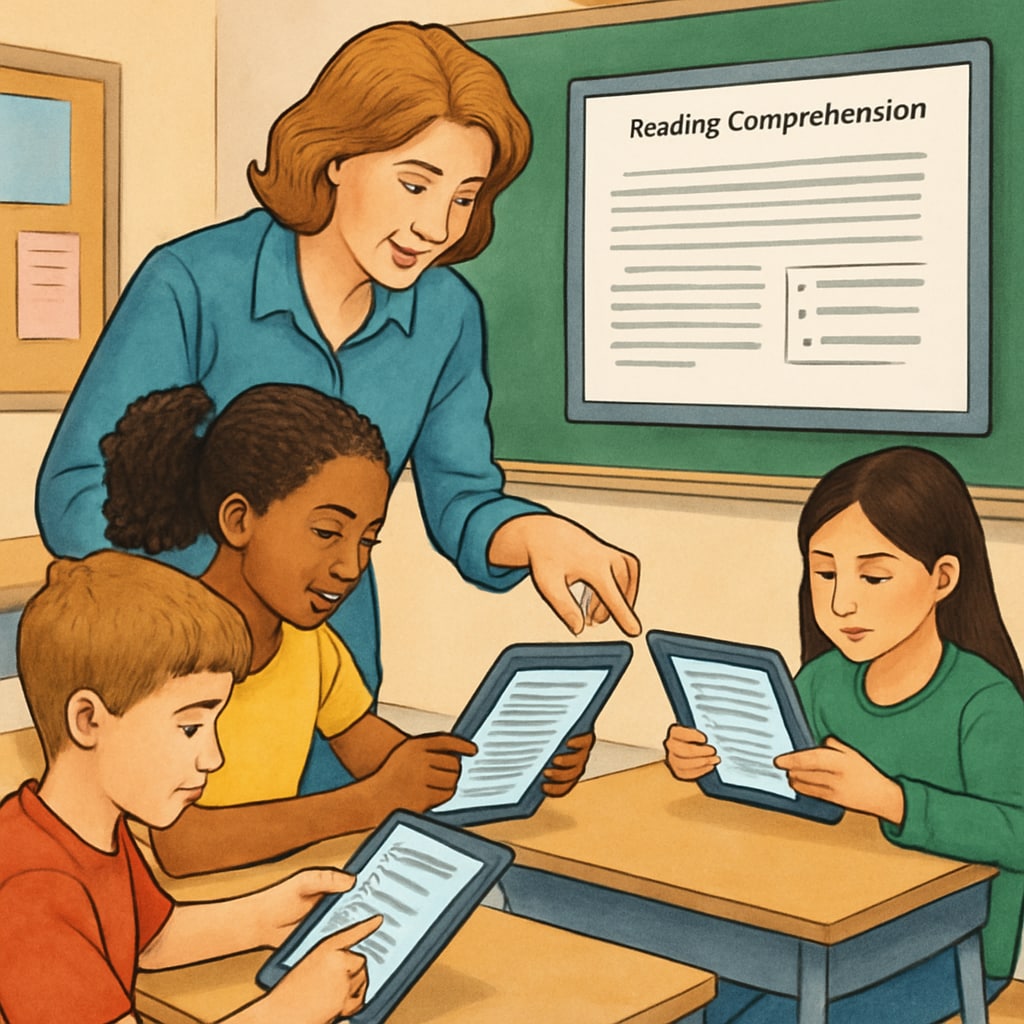For educators and parents alike, finding effective and affordable tools for assessing reading comprehension in elementary school students can be a challenge. The A.R. (Accelerated Reader) system, while popular, often comes with a hefty price tag, making it inaccessible for many schools and families. However, there are free alternatives that not only provide excellent reading comprehension tests but also enhance students’ reading interest and critical thinking abilities. This article explores these options, helping you support young readers without stretching your budget.
Why Look Beyond the A.R. System?
The A.R. system has long been a staple in schools, offering a structured approach to tracking student progress through reading quizzes and point-based rewards. While its benefits are clear, such as motivating students to read and providing data for educators, it also has some drawbacks. The high cost of licensing and subscription fees can strain school budgets. Furthermore, some critics argue that the focus on accumulating points may shift attention away from the joy of reading and deeper comprehension.
Fortunately, there are many free alternatives that prioritize both effective assessment and cultivating a love for reading. These options encourage students to think critically about what they read rather than focusing solely on earning points.

Top Free Reading Comprehension Testing Alternatives
Here are some excellent, cost-free resources that educators and parents can use to assess reading comprehension while fostering a love for literature:
- ReadWorks: ReadWorks provides a vast library of reading passages and comprehension questions, tailored to different grade levels and aligned with educational standards. It also offers tools to track progress and adapt to individual learning needs.
- CommonLit: CommonLit is another excellent platform offering free reading materials and comprehension exercises. Its focus on diverse, high-quality texts helps students explore a wide range of topics while improving their reading skills.
- K12Reader: K12Reader features printable worksheets for all grade levels, covering comprehension, vocabulary, and grammar. This is a great choice for offline activities.
These resources not only provide free access to materials but also emphasize meaningful engagement with texts. They are designed to help students develop critical thinking skills and a genuine love for reading.

How to Foster Reading Interest Alongside Testing
While assessing reading comprehension is important, fostering a lasting interest in reading is equally crucial. Here are some strategies to achieve both goals:
- Offer Choice: Allow students to select books that align with their interests. This autonomy can significantly boost motivation.
- Incorporate Discussions: Encourage group discussions or one-on-one conversations about books. This creates a social connection to reading and helps students articulate their thoughts.
- Set Realistic Goals: Instead of focusing on earning points, set goals like finishing a chapter or identifying key themes. Celebrate these achievements to build confidence.
In addition, many free tools like ReadWorks and CommonLit include features that promote engagement, such as interactive questions and multimedia support. These elements make reading a more dynamic and enjoyable experience for students.
Conclusion: A Balanced Approach to Reading Education
By exploring free alternatives to the A.R. system, educators and parents can provide high-quality reading comprehension assessments without sacrificing their budgets. Tools like ReadWorks, CommonLit, and K12Reader offer valuable resources that nurture both comprehension skills and a love for reading. At the same time, strategies such as offering choice, encouraging discussion, and setting meaningful goals can help students develop a deeper connection to books.
Ultimately, the goal is to strike a balance between assessment and inspiration. By focusing on both, we can ensure that young readers not only perform well academically but also carry a lifelong passion for literature.
Readability guidance: This article uses accessible language and short paragraphs to ensure clarity. It includes lists to summarize key points and maintains an active voice throughout. Transition words like “however,” “in addition,” and “for example” are used to improve flow.


